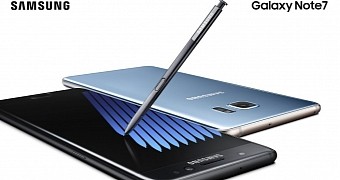Samsung discontinued the production of the Galaxy Note 7 and announced the recall of original and replacement units from all over the world last week. But the exact flaw that caused batteries in Note 7 smartphones to overheat and catch fire is still unknown.
The Korea Testing Laboratory already launched an investigation to determine the why Galaxy Note 7 smartphones overheated and caught fire. Samsung Electronics provided the lab with five phones that caught fire in the country earlier this month.
Yonhap News reports that the lab will conduct the investigation on Galaxy Note 7 batteries and will use the latest testing technologies, including X-ray and computerized tomography to find the cause of the problem.
An official from Samsung Electronics stated that the company handed over phones that caught fire in Korea and intends to cooperate with the KTL investigation. In addition, Samsung has focused all of its efforts on finding the flaw that caused the whole Note 7 fiasco.
Samsung Mobile chief vowed to find the exact cause of faulty Note 7 phones
Last week, Samsung’s Mobile chief apologized for the Note 7 situation and pledged to find the exact cause of the faulty Note 7 at any cost, in order to restore consumer trust. However, several reports have indicated that Samsung engineers couldn’t replicate incidents that caused the Note 7 to catch fire and are thus unaware of the flaw that has led to the phone’s demise.
The device maker is also considering testing the faulty units that the US Consumer Product Safety Commission collected before announcing the second recall of the Galaxy Note 7. Considering that investigations are being conducted by both government agencies and Samsung, it shouldn’t be long until results are officially announced.
South Korean government officials did ask Samsung to conduct additional x-ray battery tests on replacement Note 7 units before shipment. It remains to be established if these tests were conducted, considering that Samsung went against industry practices and preferred to conduct battery tests in its own facilities, rather than contact a certified third-party lab.

 14 DAY TRIAL //
14 DAY TRIAL //